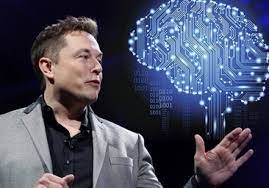- RESEARCHDistance Learning at AIU is enhanced by vast academic resources and innovative technologies build into the Virtual Campus: Hundreds of self-paced courses with video lectures and step by step lessons, thousands of optional assignments, 140,000 e-books, the Social Media & Networking platform allowing collaboration/chat/communications between students, and MYAIU develop students holistically in 11 areas beyond just academics.
- PROGRAMS OFFERED
- Areas of Study
- Courses and Curriculum
- Open Courses
- Register for a Program
- Associate Program
- Associate in Addiction Counseling
- Associate in Agriculture Food And Resources
- Associate in Anti Terrorism Security
- Associate in Behavior Analysis In Special Education
- Associate in Bioethics
- Associate in Climatology
- Associate in Cultural Theological Communication
- Associate in Culinary Arts
- Associate in Ecotechnology
- View all Associates Programs
- Bachelor Program
- Bachelors in Community Development
- Bachelors in Environmental Science
- Bachelor in Education (B.Ed, BS)
- Bachelors in Economics
- Bachelors in Entrepreneurship
- Bachelors in Financial Administration
- Bachelors in Human Resource Management
- Bachelors in Linguistics
- Bachelors in Nutritional Science
- Bachelors in Occupational Health and Safety
- Bachelors in Psychology
- View all Bachelor Programs
- Doctorate Program
- Doctor | of Biology (PhD)
- Doctorate in Business Administration (DBA, PhD)
- Doctor of Economics (PhD)
- Doctor of Electrical Engineering (D.Sc, PhD)
- Doctor of Finance (PhD)
- Doctorate in International Relations
- Doctorate in Information Technology (D.Sc)
- Doctor of Legal Studies (PhD)
- Doctor of Project Management (PhD)
- Doctor of Sociology (PhD, D.Sc)
- Doctorate in Sustainable Natural Resources Management
- View all Doctorate Programs
- Master Program
- Postdoctoral Program
- Postdoctoral in Animal Science
- Postdoctoral in Anti Terrorism Security
- Postdoctoral in Behavior Analysis In Special Education
- Postdoctoral in Bioethics
- Postdoctoral in Blockchain Technology and Digital Currency
- Postdoctoral in Business Management
- Postdoctoral in Cloud Computing
- Postdoctoral in Computer Engineering
- View all Postdoctoral Programs
AIU offers a wide range of majors in areas including the Arts, Business, Science, Technology, Social, and Human studies. More than 120 degrees and programs are available for adult learners at the associate’s, bachelor’s, master’s, doctoral and postdoctoral level. - VIRTUAL CAMPUS
Distance Learning at AIU is enhanced by vast academic resources and innovative technologies build into the Virtual Campus: Hundreds of self-paced courses with video lectures and step by step lessons, thousands of optional assignments, 140,000 e-books, the Social Media & Networking platform allowing collaboration/chat/communications between students, and MYAIU develop students holistically in 11 areas beyond just academics.
- ALUMNI
The world is YOUR campus!”, that is the message of AIU’s month magazine Campus Mundi. Hear the voices and see the faces that make up AIU. Campus Mundi brings the world of AIU to you every months with inspirational stories, news and achievements by AIU members from around the world (students and staff are located in over 200 countries).
Marine Life Conservation: Tackling Plastic Pollution in Our Oceans

How can innovations in technology, such as ocean-cleaning drones and floating barriers, contribute to reducing plastic pollution in marine environments? Provide examples of successful technological interventions and their impact.
Discuss the role of public awareness and education in combating plastic pollution. How can educational programs in schools and community initiatives empower individuals to make a difference? Share examples of effective awareness campaigns or initiatives you have come across.
What are the economic and environmental benefits of transitioning towards a circular economy approach to plastic waste management? How can policies promoting recycling and sustainable practices contribute to environmental conservation and economic growth?
Please share your insights on these topic in an essay with us. In your essay, consider the interconnectedness of these topics and their implications for marine biodiversity, human health, and global sustainability. Reflect on potential solutions and innovations that could further enhance efforts to preserve our oceans for future generations.
(Login to your student section to access the AIU Additional Resources Library.)
The Fragile Ocean Ecosystem Under Threat
The vast expanse of the world’s oceans harbors an intricate web of life, from microscopic plankton to majestic whales. This diverse ecosystem is a marvel of natural beauty and a critical component of Earth’s life support system, regulating climate and providing sustenance for millions of species, including humans. However, this delicate balance is under siege from an insidious and growing menace: plastic pollution.

Once hailed for their convenience and durability, plastics have infiltrated every corner of the marine environment. It is estimated that over 8 million metric tons of plastic waste enter our oceans annually, equivalent to a dump truck full of plastic being emptied into the sea every minute. This relentless influx of plastic debris poses a grave threat to marine life at all levels of the food chain. Hence, it’s crucial to understand the nature and importance of marine life and how we can save it. Thus, we have crafted our Masters in Environmental Science program in such a way that it helps students gain the required information in the best possible way.
Marine organisms, from the smallest fish to the largest whales, are increasingly entangled in or ingesting plastic debris. Seabirds mistake floating plastic fragments for food, filling their stomachs with indigestible materials that lead to starvation. Turtles confuse plastic bags for jellyfish, their primary prey, often resulting in fatal intestinal blockages. Even coral reefs, vital ecosystems teeming with biodiversity, are smothered by plastic waste, hindering their ability to thrive.
Addressing the Crisis: Global Efforts and Sustainable Solutions
Recognizing the urgency of this environmental crisis, governments, organizations, and concerned citizens worldwide are mobilizing to combat plastic pollution. International agreements and initiatives such as the United Nations’ Clean Seas campaign and the Basel Convention seek to reduce plastic waste and promote responsible waste management practices on a global scale.
Countries are implementing legislation to ban or restrict single-use plastics, promote recycling infrastructure, and incentivize using biodegradable alternatives. Innovations in technology, including ocean-cleaning drones and passive floating barriers, offer promising solutions to remove existing plastic debris from marine environments and prevent further contamination.
Public awareness and education are also critical components of the strategy to combat plastic pollution. Campaigns urging individuals and communities to reduce their plastic consumption, properly dispose of waste, and participate in beach clean-ups empower people to take meaningful action. By fostering a sustainability and environmental stewardship culture, we can change behaviors and attitudes towards plastic use and waste management.
The Magnitude of Plastic Pollution
An estimated 8 million metric tons of plastic waste enter our oceans each year, equivalent to dumping a garbage truck full of plastic into the ocean every minute. The primary sources of ocean plastic include inadequate waste management practices, improper disposal of plastic products, and plastic debris from maritime activities. Once in the ocean, plastic waste accumulates in gyres, extensive systems of circulating currents that concentrate marine debris. We have extensively discussed this topic in the AIU live class, “Towards a Circular Economy with Plastic Waste Recycling.”
Impact on Marine Ecosystems
Marine animals, from sea turtles to seabirds, mistake plastic fragments for food, leading to ingestion and potential starvation or injury. Entanglement in plastic debris, such as fishing nets and lines, poses serious threats to marine mammals and sea birds, often resulting in suffocation or severe injuries. The ingestion of plastics can also lead to internal injuries and blockages, disrupting digestive systems and impairing the overall health of marine species.

Microplastics, tiny fragments less than 5 millimeters in size, have become pervasive throughout the marine environment. These microplastics absorb and concentrate toxic chemicals from seawater, posing risks to marine organisms that ingest them and potentially entering the food chain when consumed by larger predators, including humans.
Environmental and Human Health Risks
Beyond its direct impact on marine life, plastic pollution raises significant environmental and human health concerns. Plastics do not biodegrade but instead break down into smaller particles that persist in the environment for hundreds of years. Toxic chemicals used in plastic manufacturing, such as bisphenols and phthalates, can leach into the marine environment, threatening ecosystems and potentially entering the human food chain through seafood consumption. In our live class on ‘Plastic Pyrolysis’ we have discussed how these harmful chemicals breakdown in the marine environment to create a havoc.
Studies have linked exposure to these chemicals with adverse health effects in humans, including reproductive disorders, developmental abnormalities, and increased risks of cancer and neurological disorders. Thus, addressing plastic pollution is crucial for marine conservation and safeguarding public health worldwide.
Global Responses and Initiatives
In response to the escalating plastic pollution crisis, governments, international organizations, and NGOs have taken steps to curb plastic waste and promote sustainable practices. The United Nations has recognized plastic pollution as a critical issue, leading to global agreements and frameworks aimed at reducing marine litter and improving waste management practices.So, our Bachelors in Biology program comprises of a significant section of information on marine biology.
Many countries have implemented legislation to ban or restrict single-use plastics, promote recycling infrastructure, and incentivize using biodegradable alternatives. Innovative technologies, such as ocean-cleaning drones and floating barriers, are being developed to remove existing plastic debris from oceans and prevent further accumulation.
The Role of Public Awareness and Education
Public awareness and education are pivotal in driving behavioral changes and fostering a culture of sustainability. Campaigns promoting plastic reduction, recycling, and responsible consumption empower individuals to make informed choices and reduce their plastic footprint. Community-led initiatives, such as beach clean-ups and plastic recycling programs, mobilize local efforts to combat plastic pollution and protect coastal and ocean engineering ecosystems.
Educational programs in schools and communities are crucial in instilling environmental stewardship and promoting sustainable practices from an early age. By engaging stakeholders across sectors, including businesses, academia, and civil society, we can collectively address the root causes of plastic pollution and work towards a cleaner, healthier ocean environment.
Conclusion
The challenge of plastic pollution in our oceans demands urgent and concerted action at all levels of society and governance. While progress has been made in raising awareness and implementing regulatory measures, much remains to be done to tackle this complex issue effectively. By prioritizing innovation, collaboration, and sustainable practices, we can mitigate the impacts of plastic pollution, protect marine biodiversity, and ensure the health and well-being of future generations.

Through collective efforts and unwavering commitment, we can preserve the beauty and resilience of our oceans for generations to come. By embracing a circular economy approach and reducing reliance on single-use plastics, we can create a sustainable future where marine life thrives and ecosystems flourish harmoniously with human activities. Let us unite in safeguarding our oceans as a precious heritage for all life on Earth. Join us at AIU to fight against plastic pollution of marine life as we consider it one of our primary focuses to conserve oceans globally. If you want to explore more insightful resources on this topic, read below:
Unraveling the Chemistry of Climate Change
Masters in Environmental Science at AIU
Biodegradable Breakthroughs: Leading the Charge Against Plastic Pollution
Marine Pollution: Current Status, Impacts and Remedies
A Review of Marine Debris Research in Vietnam.
Towards a Circular Economy with Plastic Waste Recycling – Live Class
Reminder to our Dear Students,
Please ensure you are logged in as a student on the AIU platform and logged into the AIU Online
Library before accessing course links. This step is crucial for uninterrupted access to your learning
resources.
AIU Success Stories







Contact Us Today!
Begin Your Journey!
AIU’s Summer of Innovation and Growth gives you the ability to earn up to $5000 in tuition credit by completing free lessons and courses.
Whether you’re looking to acquire new skills, advance your career, or simply explore new interests, AIU is your gateway to a world of opportunities. With free access to 3400 lessons and hundreds of courses the ability to earn credits and earn certificates there’s no better time to start learning.
Join us today as a Guest Student and take the first step towards a brighter, more empowered future.
Explore. Learn. Achieve.

Contact Us
Atlantic International University
900 Fort Street Mall 905 Honolulu, HI 96813 info@aiu.edu
Quick Links
Home | Online Courses | Available Courses | Virtual Campus | Career Center | Available Positions | Ask Career Coach | The Job Interview | Resume Writing | Accreditation | Areas of Study | Bachelor Degree Programs | Masters Degree Programs | Doctoral Degree Programs | Course & Curriculum | Human Rights | Online Library | Representations | Student Publication | Sponsors | General Information | Mission & Vision | School of Business and Economics | School of Science and Engineering | School of Social and Human Studies | Media Center | Admission Requirements | Apply Online | Tuition | Faculty & Staff | Distance Learning Overview | Student Testimonials | AIU Blogs | Register for Program | Privacy Policy | FAQ



















